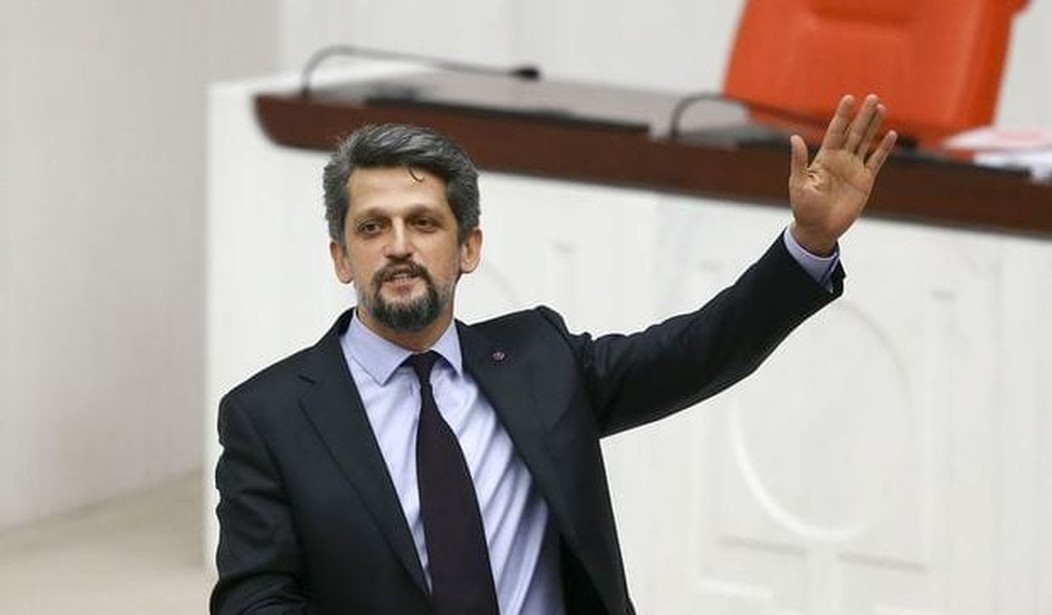Turkey’s ruling Justice and Development Party (AKP) and opposition deputies — the Republican People’s Party (CHP), the Nationalist Movement Party (MHP), and the pro-Kurdish Peoples’ Democratic Party (HDP) — have begun voting on the articles of a constitutional amendment package that would bring a dictatorial presidency.
Debates were repeatedly interrupted by brawls that erupted between the AKP and CHP deputies during the vote. The MPs even shoved one another and threw punches.
However, one common prejudice united the AKP, MHP, and CHP deputies: their hatred of Armenians.
On January 13, the lone Armenian member of Turkish Parliament, Garo Paylan of the HDP, briefly talked about the 1915 Armenian Genocide in his speech addressing the parliamentarians. Referring to the constitutional reforms enacted during the later stages of the Ottoman Empire, Paylan first called on Turkish deputies not to repeat the mistakes of the past and to promote pluralism, diversity, and inclusivity in the new constitution.
Paylan then said:
Between 1913 and 1923, Armenians, Greeks, Syriacs, and Jews had been lost. They were either exiled with genocides and major massacres or subjected to population exchanges.
As Paylan was delivering his speech, parliamentarians from the AKP and other parties interrupted him angrily. The deputy speaker of the parliament, Ahmet Aydin, also intervened, telling Paylan:
Please fix your statements. There is no genocide. There might have been some reciprocal sufferings but you cannot define it as genocide.
Paylan responded:
We used to account for 40 percent [of the country’s population]. Now we are barely one out of a 1,000. It seems likely that something happened to us. I define this as genocide no matter what you call it.
The Armenian people very well know what was done to them. I very well know what was done to my ancestors, my grandfather. To you, I am “a leftover of the sword.” We Armenians are are null and void now. If we will learn lessons — but not hostility — from the past, let’s look at this together.
In Turkey, the survivors of Christian massacres are often called “the leftovers of the sword.” In the midst of angry and loud protests of Turkish deputies, Aydin rebuked Paylan:
[Paylan should] watch out for his behavior and attitude and stop uttering words that offend the Turkish nation.
Here is video of Paylan’s speech:
The Turkish parliamentarians then voted to ban Paylan from participating in the Parliament for three sessions.
Following the announcement of the decision, HDP deputies left the parliament with him. The group deputy chairmen of the AKP, CHP, and MHP declared they condemned Paylan’s statements, calling them “unacceptable.” The part of the speech in which Paylan referred to the Armenian genocide was also removed from the parliamentary minutes.
In an interview with Radio Agos, Paylan described what happened in the aftermath of his speech:
The deputies of the AKP started screaming and there was a break of an hour and a half. Then the AKP and MHP deputies held a meeting. They also informed the ministers of the situation and it was turned into a crisis. The MHP told the AKP: “If you do not punish Paylan, we will withdraw our support from the constitutional changes.”
“The worst was that the AKP, CHP and MHP all made insulting statements that declared that I could not use the word genocide. There was an environment of lynching … I tried to explain the dangers of creating a “constitution for Turks only” by referring to what happened 100 years ago. I also told them not to be obsessed with words. I just talked about the great calamity that befell us. I did not provoke anyone in any way.
Ironically, the same Turkish parliament was very calm and quiet when, in 1996, the interior minister Meral Aksener — currently an MP from the Nationalist Movement Party (MHP) — said that the leader of the PKK (Kurdistan Workers’ Party), Abdullah Ocalan, was “Armenian semen.”
There were no angry protests or opposition to her statements. Aksener later attempted to clarify the remark by saying:
I did not refer to the Armenians living in Turkey. I referred to the Armenian race in general.
The Turkish parliament is in proud denial. The 1915 Armenian genocide began with a decision to exterminate them made by the political party in power at the time in the Ottoman Empire, the Committee of Union and Progress (CUP), popularly known as the Young Turks.
The Armenian National Institute explains:
The Armenian Genocide was centrally planned and administered by the Turkish government against the entire Armenian population of the Ottoman Empire. The Armenian people were subjected to deportation, expropriation, abduction, torture, massacre, and starvation.
It is estimated that one-and-a-half million Armenians perished between 1915 and 1923. There were an estimated two million Armenians living in the Ottoman Empire on the eve of WWI. Well over a million were deported in 1915. Hundreds of thousands were butchered outright. Many others died of starvation, exhaustion, and epidemics which ravaged the concentration camps. … Women and children were abducted and horribly abused.
At the end of the genocide, the entire wealth of the Armenian people was seized by government officials or private persons in Turkey.
Since the genocide, Turkish authorities have engaged in historic revisionism that has not only hindered the international recognition of the events but also misled the Turkish people. They have been fed a false narrative of the genocide: that the perpetrators were actually nationalistic heroes who stopped the treacherous Armenians from dividing the “Turkish fatherland.”
Moreover, under Article 301 of the Turkish Penal Law, one who is convicted of “insulting Turkey, the Turkish nation or Turkish government institutions” — for example, by asserting that what happened in 1915 was genocide — can be sentenced to prison.
Despite all of the risks, some brave residents of Turkey are telling the truth about the genocide and the grave restrictions against free speech in the country.
Necati Abay, a journalist and spokesperson for the Platform of Solidarity with Arrested Journalists (TGDP), has reported that 112 journalists and authors have been killed in Turkey in since 1909. During the 1915 Armenian Genocide, 32 Armenian journalists and authors were slain. Among them were lawyers, deputies of the Ottoman parliament, and pioneers of western Armenian literature. The dead bodies of some of them have never been recovered.
See the TGDP’s list here.
Abay, also a member of Reporters Without Borders (RWB), became a political refugee in Germany in 2012 after being prosecuted for “being a member of a terrorist organization” — an accusation commonly directed at dissident authors in Turkey. He had been arrested three times — and tortured — before he was convicted to imprisonment for 11 years and three months by an Istanbul court.
Abay has been forced to pay the price for his views and writings critical of the genocidal and repressive policies of the Turkish state.
However, statements that hatefully target and insult the Armenian people are considered perfectly fine in Turkey — free speech in Turkey is only for racists and deniers of genocide.










Join the conversation as a VIP Member